 Your new post is loading...
 Your new post is loading...

|
Scooped by
Gust MEES
February 15, 2019 4:20 AM
|
Smart contracts have a wide range of possible applications, particularly in the field of the Internet of Things. Imagine a “smart” fridge that could detect when you run out of milk. Upon such detection, your fridge would order a new carton of milk online. Is this order, placed by a fridge, a legally binding contract? Charles Duro, Lawyer at Allen & Overy Luxembourg SCS* is going deeper into details.
(Featured Image: Charles Duro, Lawyer at Allen & Overy Luxembourg SCS / Image Credit © Olivier Minaire)
What are “smart” contracts?
While there is no universally agreed definition of what constitutes a “smart” contract, digital currency and smart contracts pioneer Nick Szabo defined it as “a set of promises, specified in digital form, including protocols within which the parties perform on these promises”(1). Roughly summarised, a smart contract is an “IF-THEN” statement in a piece of code that is executed by each node on the network to automate (potentially) a particular state resulting from a contractual deliverable without further human interaction.
Smart contracts take different forms and can be divided into three main categories: (i) smart contracts which consist purely of a computer code, (ii) contracts in natural language (i.e. regular language as opposed to a computer code), but which rely on a computer code in order to be executed, and (iii) “split contracts”, which contain both coded and natural language.
When is a contract legally binding? Learn more / En savoir plus / Mehr erfahren: http://www.scoop.it/t/21st-century-learning-and-teaching/?tag=blockchain http://www.scoop.it/t/21st-century-learning-and-teaching/?tag=Smart+Contracts

|
Scooped by
Gust MEES
February 15, 2018 6:56 AM
|
The Blockchain Economy: A beginner’s guide to institutional cryptoeconomics
Chris Berg, Sinclair Davidson and Jason Potts are from the RMIT Blockchain Innovation Hub, the world’s first social science research centre into the economics, politics, sociology, and law of blockchain technology.
The blockchain is a digital, decentralised, distributed ledger.
Most explanations for the importance of the blockchain start with Bitcoin and the history of money. But money is just the first use case of the blockchain. And it is unlikely to be the most important.
It might seem strange that a ledger — a dull and practical document associated mainly with accounting — would be described as a revolutionary technology. But the blockchain matters because ledgers matter.
Learn more / En savoir plus / Mehr erfahren: https://www.scoop.it/t/21st-century-learning-and-teaching/?&tag=blockchain

|
Scooped by
Gust MEES
November 1, 2017 11:29 AM
|
Unless you’ve been hiding under a rock, I’m sure you’ve heard of Bitcoin and blockchain. After all, they are one of the most trending topics these days — the ultimate buzzwords of the year. Even people who’ve never mined cryptocurrency or understand how it works, are talking about it. My non-techie friends are completely at loss … Learn more / En savoir plus / Mehr erfahren: https://www.scoop.it/t/21st-century-learning-and-teaching/?&tag=blockchain

|
Scooped by
Gust MEES
September 8, 2017 2:30 AM
|
DETROIT (Reuters) - The technology underpinning the cryptocurrency bitcoin is migrating to the auto industry and vehicle sharing.
Accounting and consulting firm EY, part of Ernst & Young Global Ltd, said on Wednesday it was launching a blockchain based system that will enable companies or groups of individuals to more easily share ownership of vehicles and access to cars and trucks. EY could deploy the system, called Tesseract, in a test with an unnamed partner within the next quarter, EY partner John Simlett told Reuters in an interview.
The concept of sharing the use of vehicles is not new to the auto industry, but the use of blockchain technology to record vehicle ownership, log the use of vehicles, and apportion insurance costs and other transactions is in its infancy. Learn more / En savoir plus / Mehr erfahren: http://www.scoop.it/t/21st-century-learning-and-teaching/?&tag=blockchain

|
Scooped by
Gust MEES
August 10, 2017 12:58 PM
|

|
Scooped by
Gust MEES
March 14, 2017 4:00 PM
|
Die Blockchain wird meist in Verbindung mit Bitcoins gebracht. Ganz falsch ist der Zusammenhang auch gar nicht. Zwar ist die Anwendung der Blockchain-Methode generell auch in anderen Bereichen möglich, in einer offenen Blockchain erfolgt die Validierung jedoch grundsätzlich durch das sogenannte „Mining“. Und das wiederum ist nur mit Bitcoins möglich, da sich der nicht unerhebliche Validierungsaufwand für potenzielle Miner schlicht nur durch die anteilige Entlohnung durch Bitcoins lohnt. Gratis würde wohl kaum jemand seinen Rechner und die entsprechende Rechenleistung zur Verfügung stellen.
Lediglich in geschlossenen Systemen, etwa zwischen Banken gibt es auch andere Validierungsmethoden. Gerade Banken betreiben aktive Forschungen auf dem Gebiet der Blockchain.
Besonders nützlich für die Geldinstitute ist ein geschlossenes System etwa bei der Übertragung von Wertpapieren zwischen den verschiedenen Häusern. Das die Blockchain auf längere Sicht also die Banken abschaffen wird, stimmt deshalb nicht.
Das mag vielleicht auch daran liegen, dass für die Blockchain-Technologie ein relativ fundiertes Wissen benötigt wird. Die Methode kann also, zumindest zum aktuellen Zeitpunkt, mit Nichten von jedermann verwendet werden. Auch Experten gibt es auf diesem Gebiet noch sehr wenige. Learn more / En savoir plus / Mehr erfahren: http://www.scoop.it/t/21st-century-learning-and-teaching/?&tag=blockchain

|
Scooped by
Gust MEES
February 8, 2017 2:35 PM
|

|
Scooped by
Gust MEES
September 25, 2016 3:24 PM
|
Since its advent in 2009, bitcoin’s decentralized, broker-less and secure mechanism to send money across the world has steadily risen in popularity and adoption. Of equal — if not greater — importance is the blockchain, the technology that supports the cryptocurrency, the distributed ledger which enables trustless, peer-to-peer exchange of data. Every day, new companies and organizations, including big names such as Microsoft and Tesla, take strides toward or show interest in using cryptocurrency and blockchain to support their business. But the fame of blockchain has also given rise to two new challenges, namely that of interoperability and flexibility. There are now more than a score of blockchain-based currencies, each optimized for different purposes, with different exchange rates, verification and consensus mechanisms, performance, distribution function, block size limit and degree of anonymity. And none of these currencies are compatible with others, making it hard for users to transfer money between them. Learn more / En savoir plus / Mehr erfahren: http://www.scoop.it/t/21st-century-learning-and-teaching/?tag=blockchain

|
Scooped by
Gust MEES
June 22, 2016 8:22 AM
|

|
Scooped by
Gust MEES
June 9, 2016 7:28 PM
|
|

|
Scooped by
Gust MEES
March 16, 2018 12:08 PM
|
According to a new report by the Joint Research Centre (JRC), the European Commission’s science and knowledge service, Blockchain will end paper based certificates, automate the award, recognition and transfer of credits, increase learner ownership and control over their own data, reduce institutional data costs and risk–but only if open standards are adopted. Learn more / En savoir plus / Mehr erfahren: https://www.scoop.it/t/21st-century-learning-and-teaching/?&tag=blockchain

|
Scooped by
Gust MEES
November 1, 2017 11:42 AM
|
The solution for Smeets and his team though is not to pile on extra layers of authentication, but rather to distribute them. And that's where blockchain comes it. Because the blockchain functions via a distributed and encrypted ledger shared across all of a network's users and devices, it creates a network of authentication that is verifiable and not easily hacked. With blockchain implemented, a device cannot access a network unless it is verified through the entire ledger. In this scenario attacks like Mirai become significantly more difficult, if not impossible, because a hacker would need to modify the entire ledger, and not just the credentials of any one device.
Ericcson Research demonstrated a proof-of-concept of this idea at the 2017 Mobile World Congress in Barcelona this past March. The researchers set up a small WiFi network that used blockchain authentication instead of a typical username/password setup. Learn more / En savoir plus / Mehr erfahren: https://www.scoop.it/t/21st-century-learning-and-teaching/?&tag=blockchain

|
Scooped by
Gust MEES
September 15, 2017 4:48 PM
|

|
Scooped by
Gust MEES
September 8, 2017 1:25 AM
|
It’s long been argued that blockchain – the underlying DNA of cryptocurrency Bitcoin – could transform the way financial services companies do business, but how close is it to being used day-to-day?
When it comes to some aspects of the financial services industry, adoption is still a little way off.
There’s no doubt that blockchain’s real-time characteristic and ability to act as a public ledger of all transactions could revolutionise many parts of financial services, reducing risks and bringing cost savings among other benefits. Learn more / En savoir plus / Mehr erfahren: http://www.scoop.it/t/21st-century-learning-and-teaching/?&tag=blockchain

|
Scooped by
Gust MEES
May 28, 2017 1:58 PM
|

|
Scooped by
Gust MEES
March 13, 2017 7:30 PM
|

|
Scooped by
Gust MEES
January 20, 2017 3:02 AM
|

|
Scooped by
Gust MEES
September 7, 2016 8:21 AM
|
Wieso Smart Contracts die Erwartungen enttäuschen müssen
Was Juristen seit Jahrhunderten nicht geschafft haben, wollten Blockchain-Enthusiasten per Code regeln. Doch so leicht ist das nicht, wie der DAO-Hack zeigt. Dabei hätte man aus der Rechtsgeschichte lernen können. An einer Schnittstelle zur formalisierten Streitschlichtung geht kein Weg mehr vorbei.
Schon lange träumen Juristen davon, ein Gesetz zu formulieren, dem es gelingt, alle Problemfälle dieser Welt zu erfassen. Egal, was auch passieren mag: Das Recht gibt eindeutig vor, wie die passende Lösung auszusehen hat. Diesen Traum teilt die Smart-Contract-Community. Ein automatisierter Vertrag soll her, der keiner menschlichen Interpretation bedarf. Alle möglichen Abzweigungen sind der Blockchain schon einprogrammiert. Ein hehres Ziel - doch in der Geschichte des Vertragsrechts stets gescheitert. Auch Smart Contracts sind vor diesem Schicksal nicht gefeit. Learn more / En savoir plus / Mehr erfahren: http://www.scoop.it/t/21st-century-learning-and-teaching/?tag=blockchain

|
Scooped by
Gust MEES
June 22, 2016 7:23 AM
|
|



 Your new post is loading...
Your new post is loading...

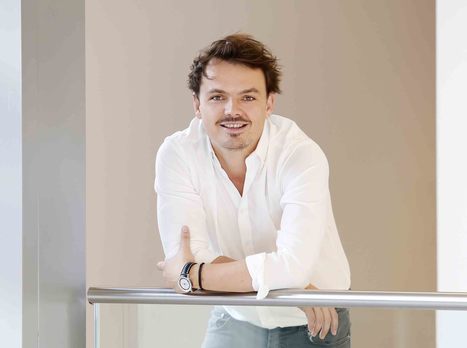




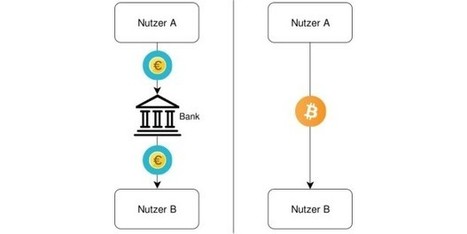
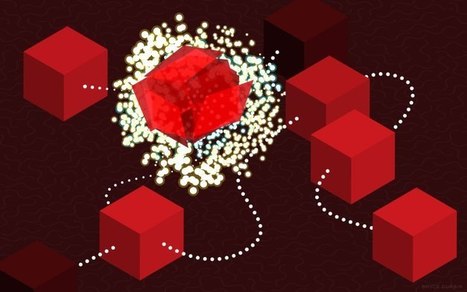
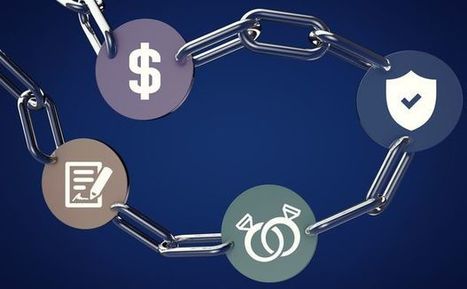
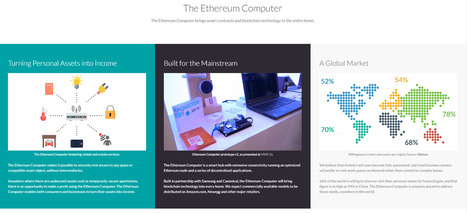
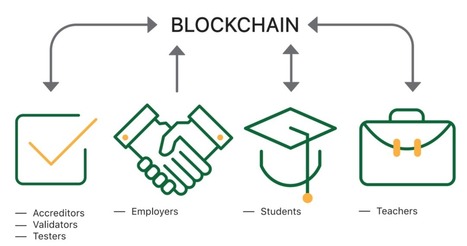



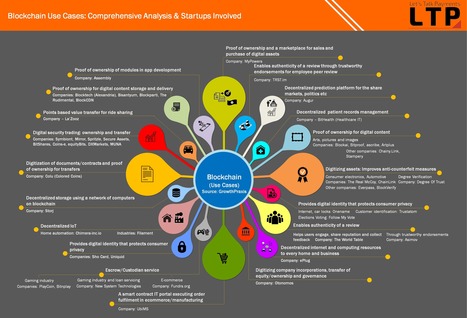
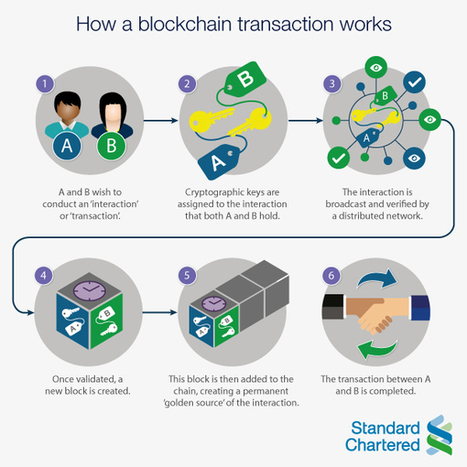










Smart contracts have a wide range of possible applications, particularly in the field of the Internet of Things. Imagine a “smart” fridge that could detect when you run out of milk. Upon such detection, your fridge would order a new carton of milk online. Is this order, placed by a fridge, a legally binding contract? Charles Duro, Lawyer at Allen & Overy Luxembourg SCS* is going deeper into details.
(Featured Image: Charles Duro, Lawyer at Allen & Overy Luxembourg SCS / Image Credit © Olivier Minaire)
What are “smart” contracts?
While there is no universally agreed definition of what constitutes a “smart” contract, digital currency and smart contracts pioneer Nick Szabo defined it as “a set of promises, specified in digital form, including protocols within which the parties perform on these promises”(1). Roughly summarised, a smart contract is an “IF-THEN” statement in a piece of code that is executed by each node on the network to automate (potentially) a particular state resulting from a contractual deliverable without further human interaction.
Smart contracts take different forms and can be divided into three main categories: (i) smart contracts which consist purely of a computer code, (ii) contracts in natural language (i.e. regular language as opposed to a computer code), but which rely on a computer code in order to be executed, and (iii) “split contracts”, which contain both coded and natural language.
When is a contract legally binding?
Learn more / En savoir plus / Mehr erfahren:
http://www.scoop.it/t/21st-century-learning-and-teaching/?tag=blockchain
http://www.scoop.it/t/21st-century-learning-and-teaching/?tag=Smart+Contracts